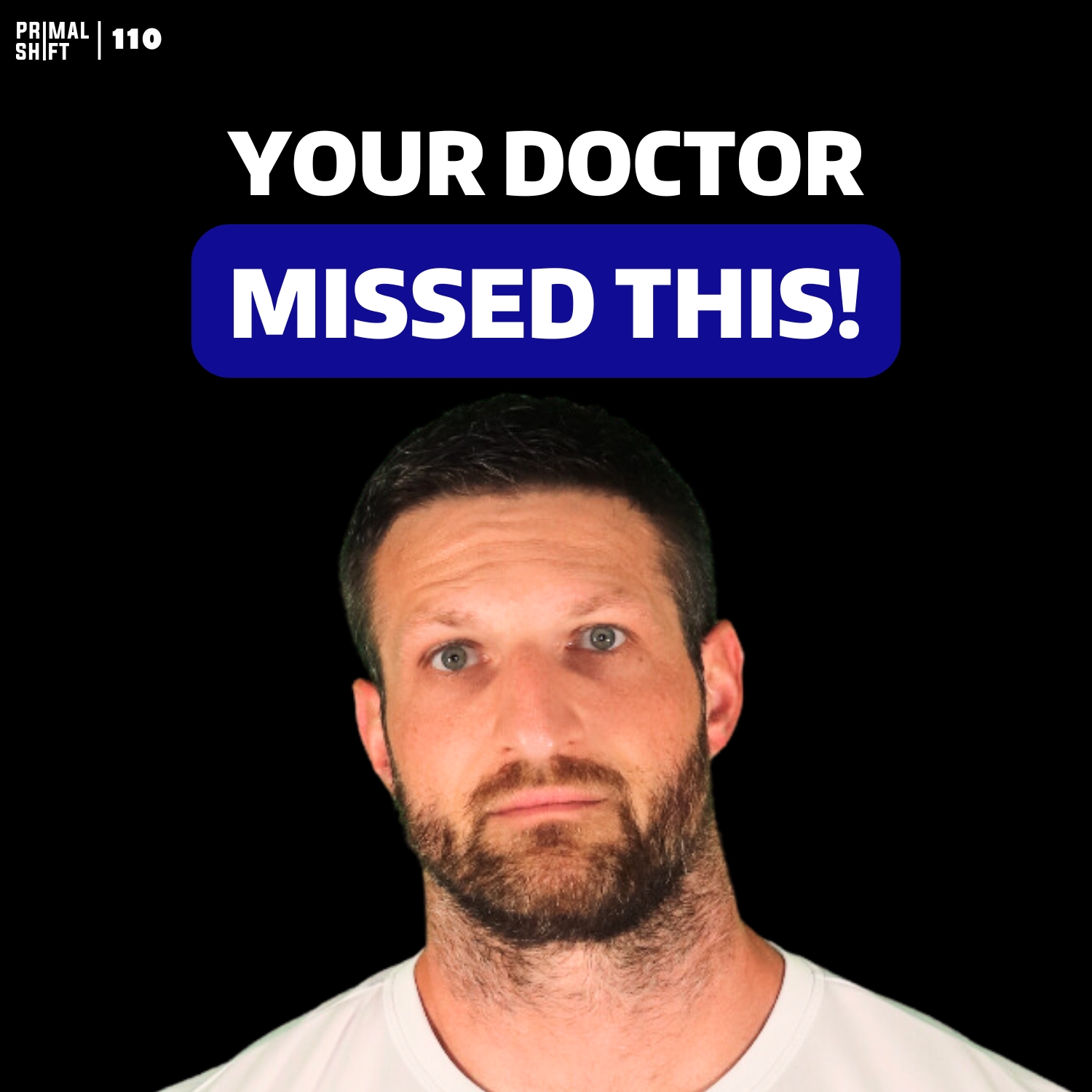Podcast Episode Details
Back to Podcast Episodes
110: Why Your Blood Pressure Reading Might Be Totally Wrong!
Season 2 Episode 110
When most people think about blood pressure, they think about a once-a-year reading at a doctor's office. But one measurement on one day doesn't tell you much about your cardiovascular health.
Just like a single fasting glucose number doesn't reveal your metabolic state, a one-off blood pressure check is largely meaningless. Blood pressure fluctuates throughout the day based on stress, sleep, exercise, hydration, and countless other factors. And even more important: the cuff on your arm measures brachial pressure — not the central pressure your heart and organs actually experience.
That distinction matters. The true risk isn't just the number on a cuff, it's how elastic your arteries are and how much pressure your aorta is under. Elastic vessels absorb the shock of each heartbeat, while stiff ones reflect it back toward the heart and raise central pressure. That's why arterial stiffness is such a strong predictor of cardiovascular risk, especially as we age or when diet and lifestyle accelerate inflammation and plaque buildup.
In this episode, I explain how modern devices can go beyond a simple systolic/diastolic reading. Using pulse wave analysis, they can estimate central blood pressure, pulse pressure, augmentation pressure, augmentation index, and oxygen supply-demand balance in the heart muscle. I share some of my own readings — including cases where a cuff reading looked "high" but the deeper markers showed excellent elasticity and low central pressure. It's a reminder that context matters far more than one isolated number.
The takeaway is clear: don't let a single reading define your health. Look at patterns over time. Pay attention to central pressure and vessel elasticity. And above all, address the lifestyle drivers that really move the needle — diet, sleep, movement, stress, and balancing electrolytes like sodium and potassium. Elevated blood pressure is not written in your genes; it's usually written in your habits.
Learn more: 👉 Get the Conneqt Pulse monitor — the device I use to track central blood pressure and arterial stiffness: https://michaelkummer.com/go/conneqt
What It Means to Be Metabolically Healthy: https://michaelkummer.com/metabolic-health/
Thank you to this episode's sponsor, OneSkin!
OneSkin's lineup of topical skin health products leverage the power of the company's proprietary OS-01 peptide to remove dead skin cells, improve collagen production, increase skin hydration and more.
Check out my before and after photos in my OneSkin review: https://michaelkummer.com/health/oneskin-review/
Get 15% off with my discount code MKUMMER: https://michaelkummer.com/go/oneskinshop
In this episode: 00:00 Intro
00:20 Why annual blood pressure readings are misleading
03:42 Understanding blood pressure and its measurement
04:37 Factors influencing blood pressure
07:34 Historical perspective on blood pressure ranges
09:19 The importance of arterial elasticity
11:37 The role of sodium and potassium
13:44 Advanced blood pressure metrics
18:55 Personal insights and recommendations
22:06 Conclusion and final thoughts
Find me on social media for more health and wellness content:
-
Website: https://michaelkummer.com/
-
YouTube: Published on 1 month ago